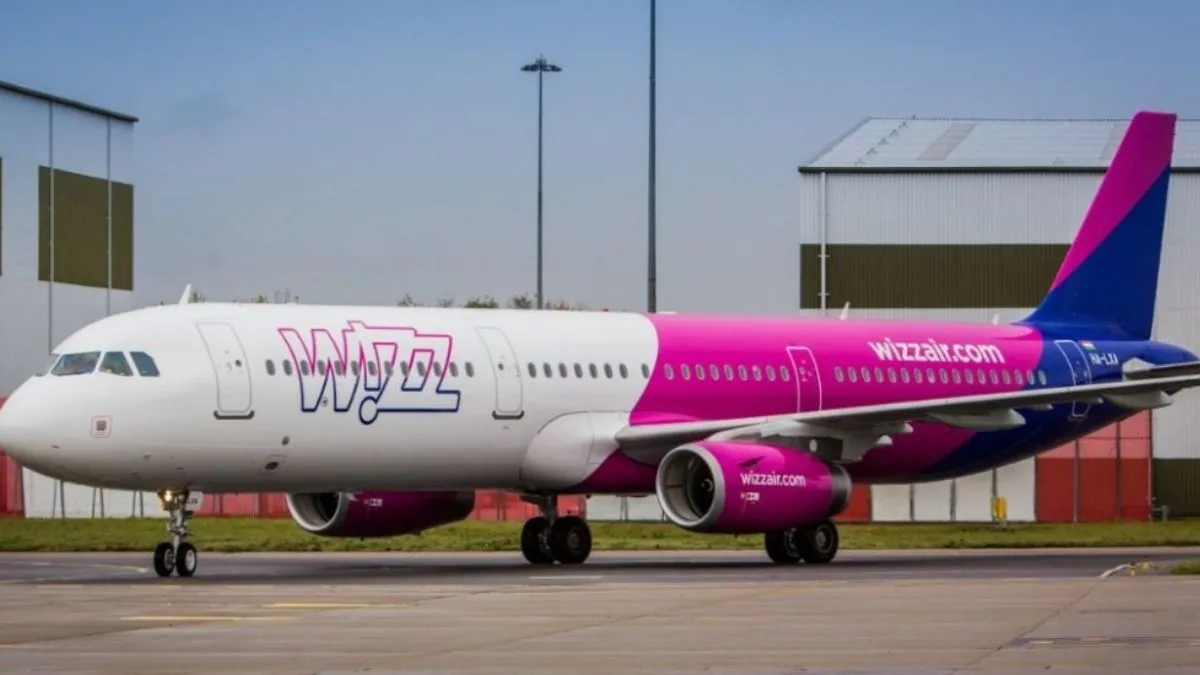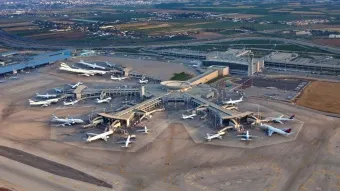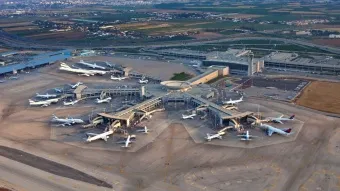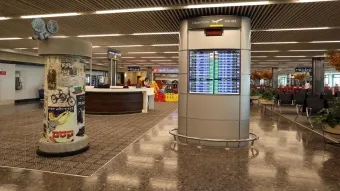Transport Minister Miri Regev convened an emergency discussion at Ben Gurion Airport on Thursday evening on the national preparedness in light of the suspension of flights by some foreign airlines arriving in Israel, following the missile strike near Ben Gurion Airport last Sunday. It should be noted that the Lufthansa Group announced the temporary suspension of flights to Ben Gurion Airport until May 18 (inclusive) and Wizz Air announced the suspension of flights until May 14 (inclusive).
The discussion was attended by the Minister of Economy and Industry, Nir Barkat, the Director General of the Ministry of Transport and Road Safety, Moshe Ben Zaken, the Director General of the Airports Authority, Sharon Kedmi, the Director General of the Civil Aviation Authority, Shmuel Zakai, the CEOs of the Israeli airlines El Al, Arkia and Israir, and other professionals.
Minister Regev noted that her office is working around the clock with its counterparts around the world and with foreign airlines, with the aim of returning them to regular activity in Israel as soon as possible. In addition, the minister said that "we have transferred the IDF investigation to the foreign aviation authorities at lightning speed, they were impressed and therefore allow flights to Israel. It should be noted that since the outbreak of the war to this day, including in the current crisis, no regulator in the world has instructed to avoid flights to Israel. The decisions that fell on the subject are those of the airlines themselves, each from her own considerations, we are experienced and know that they will all return, the question is just when and how we can expedite this."
Minister Regev emphasized that despite the fact that 19 foreign companies have stopped their activity, 25 companies continue to fly to Israel and thus express confidence in our ability to maintain the security of the passengers and the planes.
The Minister of Transport emphasized her commitment to find solutions and not to leave any Israeli abroad who wants to return home: "As we have done since the beginning of the war, we have set up 'hubs' of flights among others in Athens and Larnaca, offering flights to and from Israel at a high frequency. Anyone whose flight to the country has been canceled, can change the destination to Greece or Cyprus, and from there we will help him get here. We are in constant contact with the situation room opened in the Ministry of Foreign Affairs, and we make sure to provide answers and solutions."
The Minister of Economy and Industry, Nir Barkat, asked the Israeli airlines to maintain reasonable and fair prices even at this peak demand time due to the situation, and to impose price restrictions on themselves without the need for legislative steps. "The Israeli public needs to know that Israeli airlines are not taking advantage of the current crisis for the worse. This is not the time," said the minister.
Minister Regev also emphasized that she asks the Israeli companies to limit the ticket prices from Larnaca and Athens: "I greatly appreciate the contribution of the Israeli airlines in maintaining open skies in any situation, as part of the national effort to ensure functional continuity," said the minister, "but you also have a duty to consider the Israeli consumer and not to impose unnecessary costs on him."
The CEO of the Airports Authority, Sharon Kedmi: "We are accustomed to emergency situations. Ben Gurion Airport returned to routine within 30 minutes of the missile falling. This is an exceptional achievement on a global scale. We are in contact with foreign airlines and are doing everything to reflect the situation to them. It is not taken for granted that there are quite a few foreign companies that continue to fly to Israel, and of course the Israeli companies. This stems, among other things, from our hard work together with all the other factors we work with."
The Director of the Civil Aviation Authority, Shmulik Zakai: "We are proud of the Israeli aviation industry and its rapid recovery ability, which has no brother in the world. Since the outbreak of the war to this day, more than 22 million passengers have passed through Ben Gurion Airport, and this is a rare expression of confidence in our ability to maintain flight safety for the Israeli public. Even the last event, which we do not take lightly and we all examine well what happened and what can be done so that it does not happen again, did not dry up the field activity for more than half an hour."


 Found it useful? Share
Found it useful? Share
 Share on Facebook
Share on Facebook
 Share on X
Share on X
 Share on LinkedIn
Share on LinkedIn
 Share via Email
Share via Email
 Share on WhatsApp
Share on WhatsApp
 Print Article
Print Article





